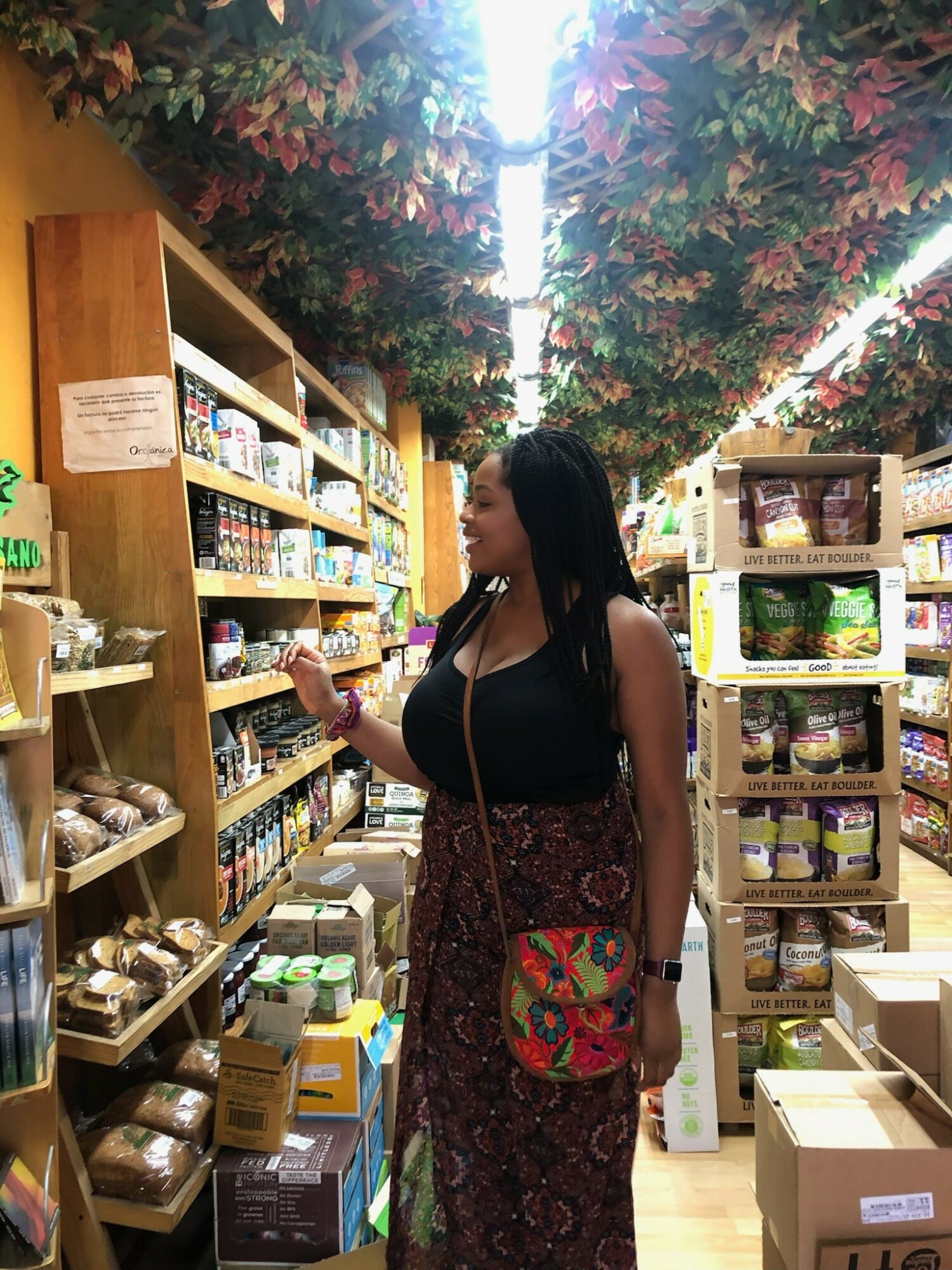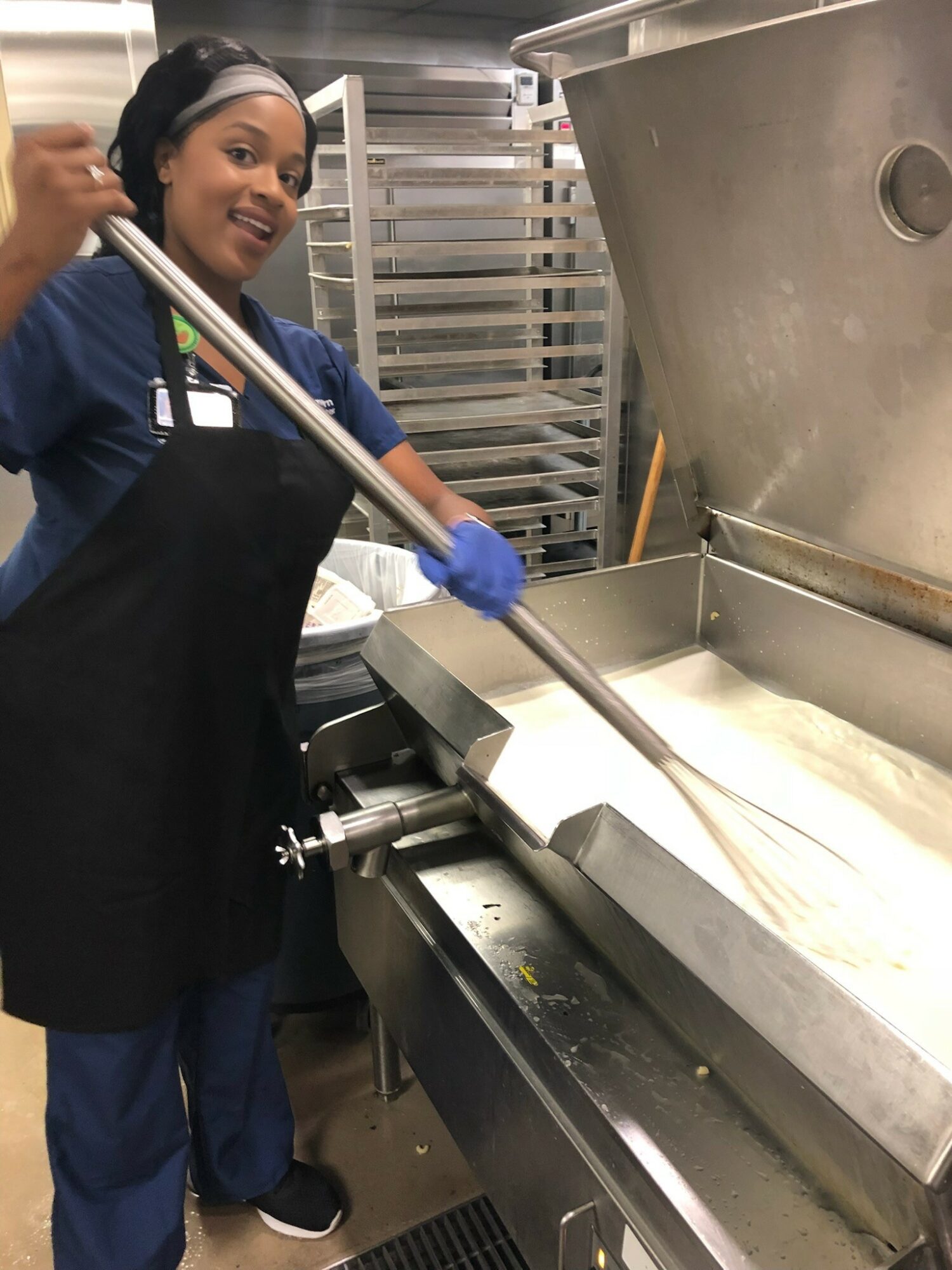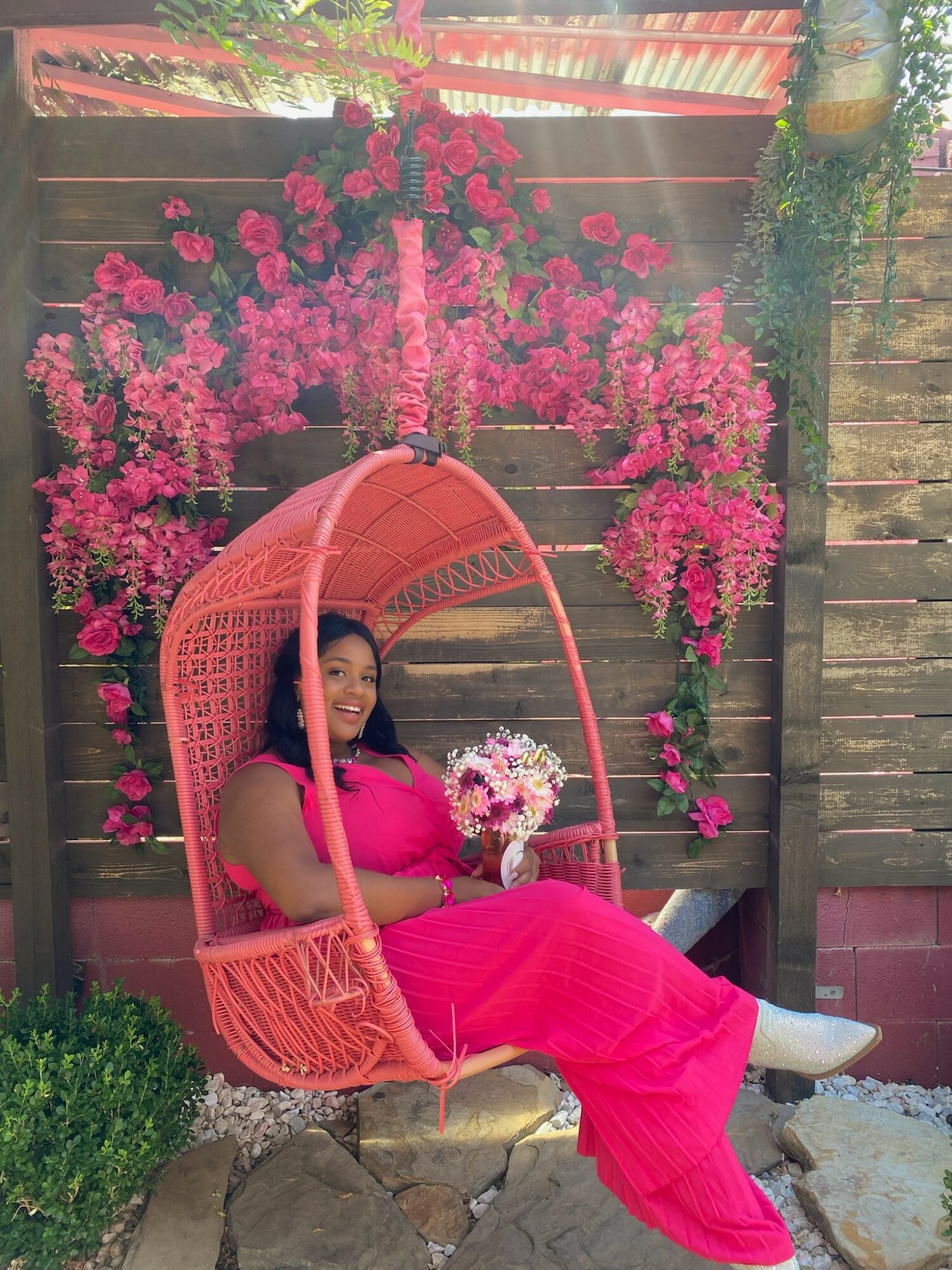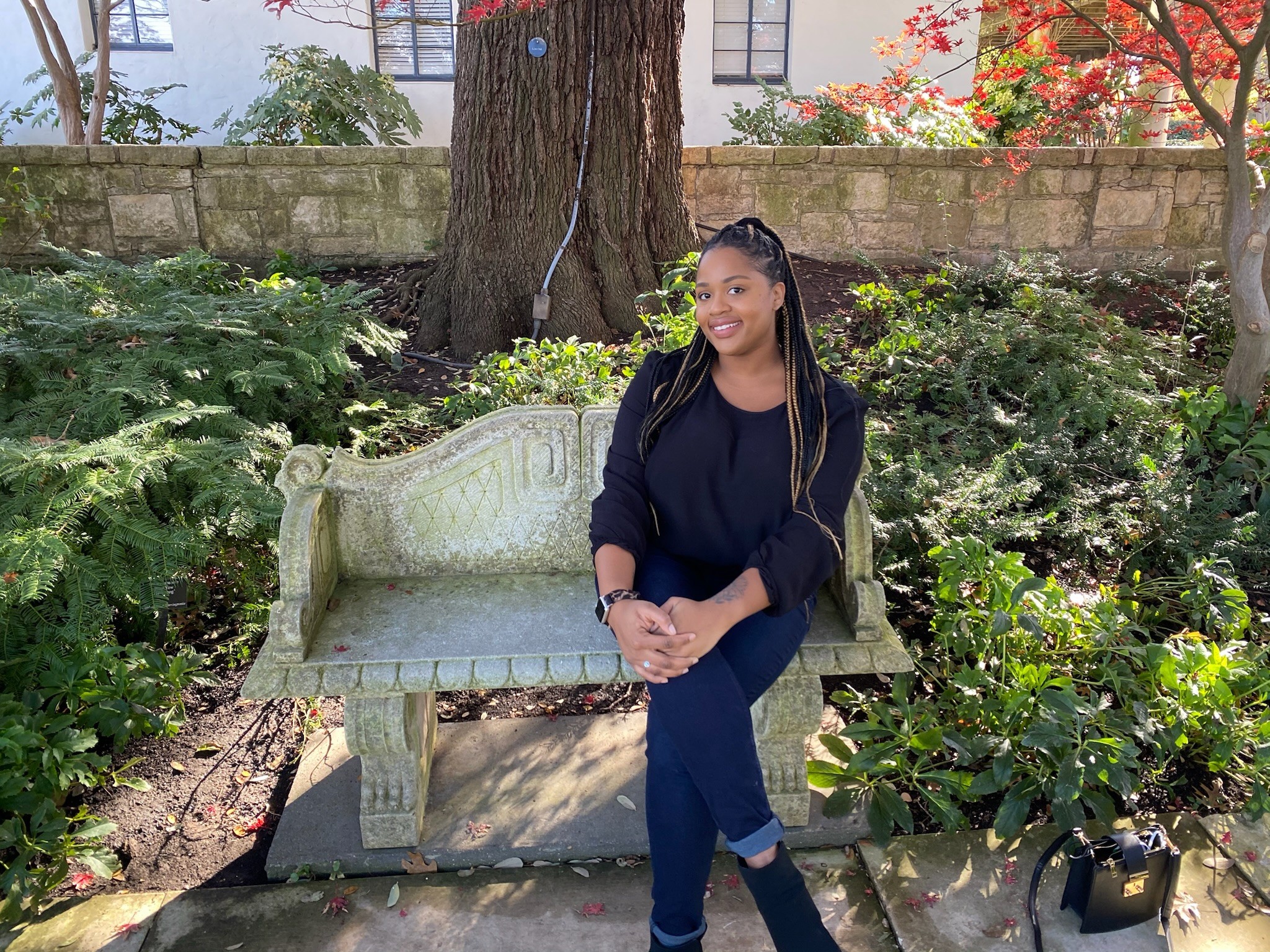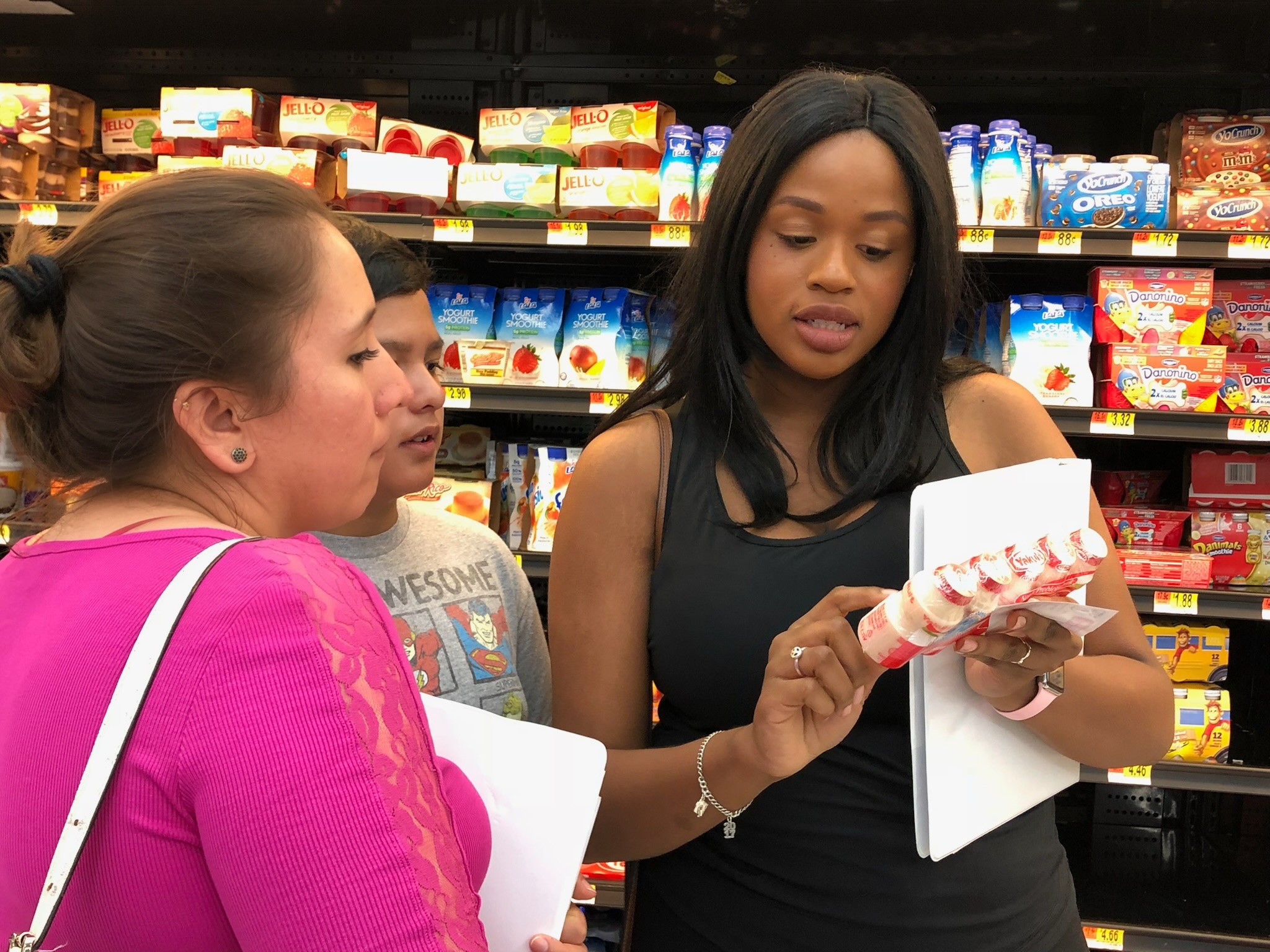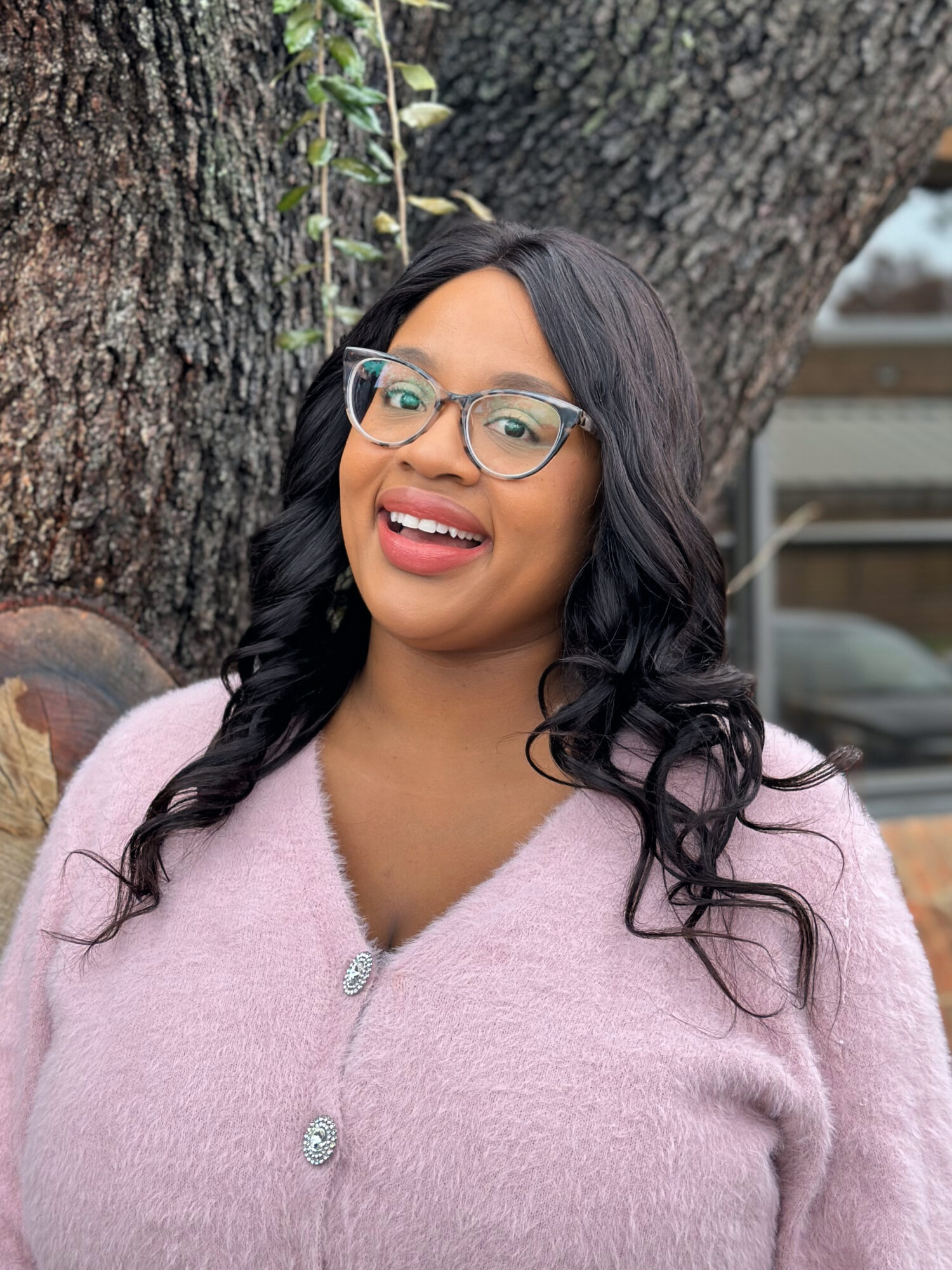 Today we’d like to introduce you to Jamala Christopher.
Today we’d like to introduce you to Jamala Christopher.
Hi Jamala, we’re thrilled to have a chance to learn your story today. So, before we get into specifics, maybe you can briefly walk us through how you got to where you are today.
Greetings! I’m delighted to share my journey to becoming a Registered Dietitian, aiming to inspire readers by sharing my lived experience of overcoming an eating disorder. As you read my story, rest assured that we are capable of far more than we believe. As Martin Luther King Jr. wisely said, “If you can’t fly, then run. If you can’t run, then walk. If you can’t walk, then crawl, but whatever you do, you have to keep moving.” These words encapsulate the essence of my story and the resilience that propelled me forward.
My journey begins in a doctor’s office at the age of 13. Seated in the chilly, jungle-themed room, I overheard the doctor telling my mom that, according to my body mass index (BMI) charts, “I was a big girl that needed to lose weight.” Reflecting now, it seems surreal that a doctor would prescribe weight loss to a developing child, leaving me with a distorted perception of body image that I would struggle with for the years to come.
As I started comparing my unique body to others, I noticed my height and more developed figure, convincing myself that the doctor was right—I needed to shed pounds. Entering high school, I observed the correlation between eating less and a slimmer waist. Pride swelled as I could go days without eating, and the sound of water sloshing in my stomach became a perverse badge of honor. At 18, another doctor’s visit after years of restrictive eating and weight loss labeled me yet again “overweight,” reinforcing my distorted belief that I still wasn’t good enough.
Fueled by a toxic mindset, my daily sustenance comprised six almonds, fifteen carrots, and half a cup of egg whites. Proper nourishment was met with punishing exercise—a six-mile walk or a two-hour workout. The weight dropped, and compliments flooded in, reinforcing the harmful cycle. College provided the perfect cover to hide my disordered eating habits, with discreet bathroom visits after social meals to rid my body of unwanted nourishment.
Externally, the weight loss garnered attention and admiration, yet internally, I battled depression, anxiety, and malnutrition. Concerns from my family fell on deaf ears, as the image I saw in the mirror contradicted their observations. Plus, I had multiple medical practitioners congratulating me on my weight loss. Never once was I asked how I was losing weight, only the words of “good job.” The only medical staff that showed concerns were those from ER visits where I was told I was dehydrated. Still, after each medical visit, I was handed a discharge summary with my BMI showing “overweight”. Desperate for answers, I was discouraged that I was still considered “overweight” after a drastic 60-pound weight loss. Exhausted and frustrated, I delved into nutrition studies, realizing it was not my weight but a culture fixated on diets and distorted body images that fueled my insecurities. I found that my mood and quality of life improved the more I adequately nourished my body.
My favorite class in my nutritional studies was a one-hour course called nutrigenomics. This class provided clarity and answers to years of being told I wasn’t a normal weight. I came to learn that I spent years trying to change who I was at the very core of my DNA due to a broken healthcare system that places too much emphasis on weight. When I learned that BMI was created based on tall, slender European men, I no longer wondered why an African American female was labeled overweight by the healthcare system. I had let an obsessive pursuit of thinness strip years of my life. Unfortunately, I consistently encounter clients with larger bodies who are instructed to lose weight solely based on their BMI without any additional justification. BMI fails as a precise method for gauging body weight or health status due to its omission of body fat percentage and distribution.
If I could revisit that pivotal day in the doctor’s office, I would challenge the narrative, questioning why my health was solely judged by weight when my lab values were normal, when I consistently trended at the 95th percentile. I would embrace my unique physique, rejecting the grip of an eating disorder. Lastly, to my younger self, I would offer a reassuring gaze and affirm, “You are enough.”
After years of fearing food, engaging in excessive exercise, and battling low self-esteem, I’ve transformed my struggle into a source of empathy. With a bachelor’s in nutritional science from Texas Woman’s University and a master’s in clinical nutrition from UT Southwestern Medical Center, I now own my own private practice, The Nurturing Willow. Through nutrition counseling, I help others navigate their journey toward a healthier relationship with their bodies and foster a balanced approach to wellness.
I’m sure it wasn’t obstacle-free, but would you say the journey has been fairly smooth so far?
Establishing a healthy relationship with food and my body has proven to be one of the most challenging yet immensely rewarding journeys. Health transcends mere weight; it encompasses various layers such as rest, relaxation, physical activity, and nutrition, all of which can be incorporated into a normal, balanced lifestyle. Nourishment extends beyond the food we consume; it involves nurturing my body through self-love and self-compassion. Learning to appreciate and accept my imperfections became a crucial aspect of this transformative process.
Through years of therapy, I began to recognize my compulsion to control aspects of life that don’t need to be controlled – like listening to and nourishing my body. An eating disorder took away years of my life in the idolized pursuit of thinness. I no longer had the ability to respond to my body’s needs because I was so caught up in listening to the external cues that diet culture had taught me were gospel. Becoming an eating disorder professional myself unveiled the prevalence of eating disorders in today’s society.
One of the countless hurdles I faced was at the start of my career in graduate school and working my first job. I’ve had multiple advisors ask me, “Are you sure dietetics is for you?”; “Are you sure eating disorders are for you?” I believed in myself when those I looked up to doubted my capabilities. One of my greatest strengths is taking on a challenge and making it sprout and bloom. I carry this aspect into my counseling— as long as you’re willing to put in the work, I’m going to be here to support you every step of the way. I represent 2.6% of African American dietitians in the United States, and because of this statistic, I love working with individuals of different cultures and helping them accept their cultural heritage through foods.
Another hurdle I faced occurred after giving birth to my precious daughter. Society’s expectations urged me to “bounce back,” but I understood that my body, having carried and delivered a child, needed time to adapt. Resolute in my decision, I refused to succumb to societal pressures and starve myself to shrink my stomach. As a single mom, I owned my pre and post-pregnancy journey, and accepted that my body is freaking awesome, stretch marks and all! At the end of the day, I won’t deny myself the freedom my ancestors worked hard to provide—to be who I want and eat what I desire.
Appreciate you sharing that. What else should we know about what you do?
I am a registered dietitian nutritionist (RD/RDN) specializing in Health at Every Size (HAES), eating disorders, disordered eating, and women’s health and wellness. I also hold the Certified Eating Disorder Specialist (CEDS) credential, which enables me to guide individuals in overcoming health obstacles and achieving their most nourished selves. I work with a diverse range of clients, starting from age 9 and up, addressing various medical conditions.
My approach is rooted in being personable, meeting clients where they are at, and cultivating an environment of honesty, fun, and motivation. Recognizing the uniqueness of each client’s intervention, I am renowned for engaging in difficult conversations, offering loving guidance, and celebrating non-scale victories. In nutritional counseling, I employ motivational interviewing, active listening, reflection, and intuitive eating. My therapeutic approaches encompass Cognitive Behavioral Therapy (CBT), Dialectical Behavioral Therapy (DBT), Acceptance & Commitment Therapy (ACT), Mindfulness Based Therapy (MBT), Meal Support Therapy (MST), and Internal Family Systems (IFS).
I advocate for an all-foods-fit philosophy, acknowledging the detrimental effects of long-term dieting on the body. If you are ready to liberate yourself from the cycle of dieting and embark on a journey towards a genuinely nourished version of yourself, I am here to provide support. In our collaborative efforts, anticipate a safe, judgment-free space where meaningful conversations and goal-setting propel you to the next step.
One of my core sources of joy is witnessing clients develop healthy relationships with their bodies and food. Whether it’s individuals who have transcended the confines of diet culture, embraced non-scale victories, or those on the path to recovery from an eating disorder, I take pride in guiding them through transformative journeys. My clients hold a special place in my heart, and I derive immense satisfaction from witnessing them nourish their bodies, enabling them to truly flourish in life.
Is there something surprising that you feel even people who know you might not know about?
I always strive to approach client’s nutrition journeys from a unique perspective. Currently, I am engrossed in writing a book that delves into body image through a faith-based lens. Despite having access to an excellent education and coming from a supportive family, crucial discussions surrounding eating disorders and embracing our unique bodies were often overlooked during my upbringing. This book is dedicated to teens and women who grapple with the challenges of nourishing and loving their bodies.
If you find yourself:
- Struggling to nourish your body due to negative body image
- Caught in the relentless diet cycle
- Fixated on the number on the scale
- Wrestling with accepting who God says you are
Then, this book is tailored for you! I aim to complete it by 2027.
Pricing:
- Primarily cash pay, with the ability to accept some insurance plans depending on your individual coverage. (BlueCross BlueShield)
- Self-Pay Rates: $160 for the first session (60-75 minutes), $140 for follow-up sessions (60 minutes) or $35 per 15-minute prorated amount.
- Sliding Scale: Please reach out to info@thenurturingwillow.com to inquire about eligibility. Availability is limited.
- Out-of-network insurance: Depending on your plan, I can provide a superbill (itemized receipt for healthcare services), and you may be able to file a claim for reimbursement with your insurance company.
Contact Info:
- Website: thenurturingwillow.com
- Email: If you or someone you know is struggling with an eating disorder or disorder eating or just if someone you know is confused and lost in their nutrition journey, feel free to contact me via email; info@thenurturingwillow.com
- Instagram: jamalatherd
- Linkedin: https://www.
linkedin.com/company/ thenurturingwillow
